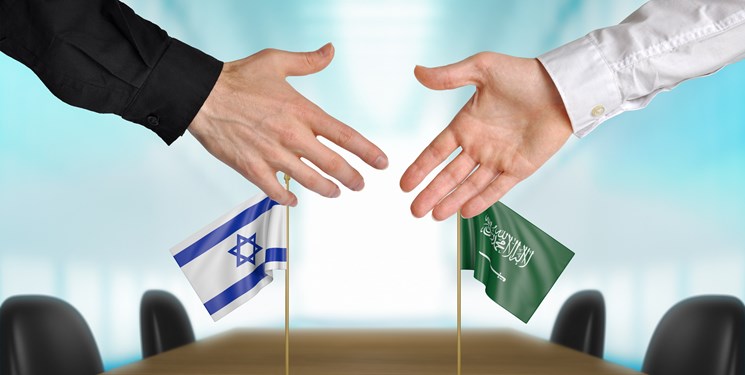Jafar Qannadbashi told the Strategic Council on Foreign Relations that “however, there has always been a concern in Riyadh that if this were to happen, the country’s religious circles, on the one hand, and its public opinion, on the other, would stage widespread protests and confront the Riyadh government with what it was escaping from through establishing relations with the Zionist regime.”
Asked about the reasons behind Saudi’s hesitation in normalizing relations with Tel Aviv, he said “during the presidency of Donald Trump, the former president of the United States, the issue of establishing Saudi relations with the Zionist regime became key, and both the Zionists and Trump himself worked hard to achieve this. At the same time, the Zionist regime, based on the so-called deal of the century, sought to use its relationship with Saudi Arabia, which is a vast and rich country among the Arab countries, to strengthen the wave of normalization of relations in the Arab world and thus encourage other Arab countries that were afraid of their nations for establishing relations with the Zionist regime to do so.”
According to him, however, all the estimates and polls show that any normalization of Saudi Arabia’s relations with the Zionist regime could lead to widespread unrest in Saudi Arabia, and would especially make the Saudi military, which is very dissatisfied with the war in Yemen to disobeys Riyadh’s orders.
On the current concerns of the Saudi authorities about normalizing relations with the Zionist regime, he said this is the issue that is already on the minds of the Riyadh authorities, and in this regard, the Saudi authorities are trying to measure the sensitivities inside and outside Saudi Arabia. The assessment is now apparently being implemented through the landing of an Israeli plane in Riyadh and the statements of the Israeli authorities that the normalization of the Tel Aviv-Riyadh relations is imminent.
According to Qannadbashi, apparently, both the officials of Riyadh and the officials of the Zionist regime feel the great need for this normalization of relations in the current situation, and in this regard, a serious alignment has been achieved to implement such an action.
“The Zionist regime is currently at its most vulnerable in the region, and the continuation of the normalization process with the Arab countries, in their view, is one of the ways that can reduce this vulnerability. Riyadh officials also need Zionist circles around the world, especially in the United States, to help them in difficult circumstances of the transition of power due to the illness of King Salman and the possibility of Muhammad bin Salman coming to power as the new king of this country”, he explained.
It should also be noted that both regimes are concerned about the developments that are taking place in the axis of resistance, and their effects are clearly evident in the occupied territories on the one hand, and the war with Yemen on the other, he added.
Qannadbashi emphasized that the realization of this joint demand of the Saudi officials and the Zionist regime depends on the reactions of the public opinion inside and outside Saudi Arabia to the landing of the Israeli plane. It also depends on the set of equations that are being formed in the Western world after the Ukraine war and its relationship with the Middle East.
“Therefore, this is an issue whose dimensions are not yet clear even to Western officials. Hence, it will take some time to comment more precisely on the possible normalization of relations between the Zionist regime and Saudi Arabia.”
Qannadbashi continued that of course, experience has shown that the normalization of Arab countries’ relations with the Israeli regime, contrary to the widespread propaganda of the international media, will not provide stability and security in these countries, but will lead to more vulnerabilities of regimes that have tried their luck by normalizing relations with Tel Aviv.
“An example is the Sudanese regime, which has faced widespread popular opposition to the normalization of relations with the Zionist regime, and this normalization has shaken the foundations of the Sudanese government.”
He added that the revelation of Saudi Arabia’s relations with the Zionist regime means accepting dangers, the consequences of which are very unknown, and it will not be able to alleviate the difficulties in transferring power to bin Salman (the new king).










0 Comments